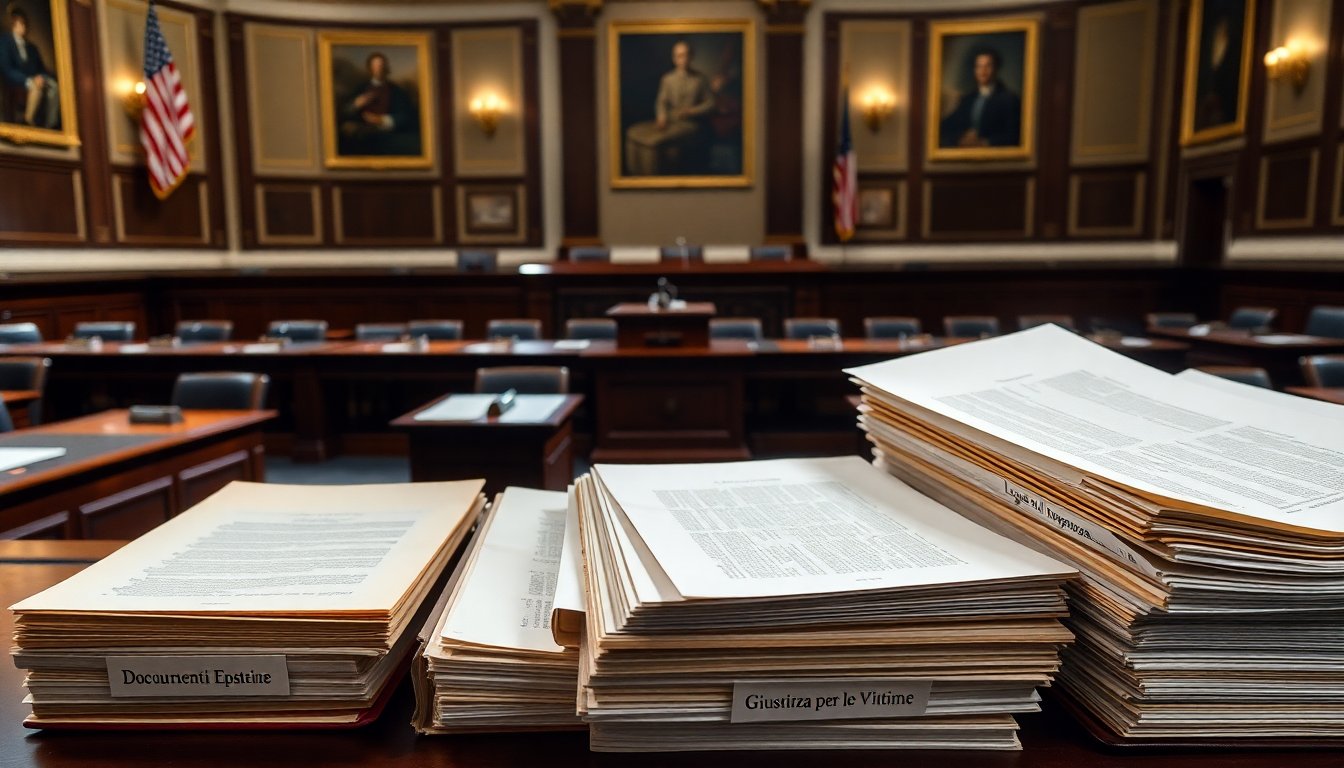Table of Contents
In a significant turn of events, the House and Senate have taken decisive action to ensure the public release of files related to the late Jeffrey Epstein, a convicted sex offender. This development follows prolonged pressure from various lawmakers and advocacy groups seeking accountability for Epstein’s crimes. The passage of this legislation marks a pivotal moment in the ongoing struggle for justice for the survivors of Epstein’s abuse.
President Trump has indicated his intention to sign the bill into law, following a strong bipartisan push from both chambers of Congress. This response illustrates the mounting pressure on the administration to address the demands of the public and the survivors, who have been advocating for transparency regarding Epstein’s extensive network and criminal activities.
Legislative journey and motivations
The journey to this moment began with a small group of bipartisan lawmakers who, in July, introduced a petition to circumvent traditional legislative barriers imposed by Speaker Mike Johnson. Despite initial skepticism surrounding the petition’s chances, the tide began to turn as more representatives recognized the need for transparency regarding Epstein’s connections to powerful individuals.
Background on Epstein’s case
Jeffrey Epstein, who had connections across political and financial elites, died in a Manhattan jail in 2019 while awaiting trial for serious charges involving the sexual abuse and trafficking of minors. His death raised many questions, particularly about the circumstances surrounding his case and the extent of his network. The new bill mandates the Justice Department to release all relevant files within 30 days, including details about Epstein and the investigation into his death. While the Justice Department can redact sensitive information regarding victims, it cannot withhold details due to concerns over political fallout or reputational damage.
Survivors and advocates call for justice
For many survivors of Epstein’s abuse, the passage of this bill represents a long-awaited victory in their quest for justice. Representative Marjorie Taylor Greene, who has been vocal in her support for the survivors, emphasized the collective struggle these women have endured, stating, “They have fought the most horrific fight that no woman should have to fight.” Greene’s remarks highlight the courage and tenacity demonstrated by the survivors as they navigated a complex political landscape.
Political dynamics and challenges
Despite the overwhelming support for the bill, dissenting opinions persist within the political landscape. Only one lawmaker opposed the measure, expressing concerns that the release of the files could inadvertently affect innocent individuals mentioned in the investigation. This sentiment underscores the delicate balance lawmakers must maintain between transparency and potential harm to innocent parties.
Throughout the legislative process, the Trump administration faced significant pressure, particularly from within its own party, to support the bill. Even as Trump initially resisted, he ultimately conceded to the growing consensus among lawmakers and indicated his willingness to sign the legislation. The bipartisan nature of the bill reflects a broader demand for accountability and showcases a rare moment of unity in a deeply divided Congress.
Public reaction and implications
The decision to release the Epstein files has been met with a mix of relief and anticipation from the public and advocates alike. Many survivors gathered outside the Capitol to share their stories, expressing exhaustion from not only their personal trauma but also the political battles surrounding their quest for justice. One survivor poignantly remarked, “We are exhausted from surviving the trauma and then surviving the politics that swirl around it.”
As the Senate prepares to finalize the bill, there is an expectation that it will pass without significant objection. The momentum generated by public demand for transparency has set a precedent for how such cases may be handled in the future. The implications of this legislation extend beyond the immediate release of files; they signal a shift towards greater accountability for those in positions of power implicated in serious misconduct.
The release of the Epstein files is not just a legislative formality; it represents a crucial step towards justice for many who have suffered. As details emerge from the files, the hope is that the truth will finally shed light on the extent of Epstein’s network and the complicity of others, ensuring that such abuses are not repeated.


